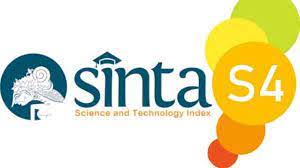Model-Model Quality Manajemen Pendidikan
Abstract
Quality is the ability of a product or service to meet customer needs. This article aims to: (1) determine the implementation of TQM in educational institutions more effectively and efficiently; (2) knowing the benefits obtained in improving quality continuously through implementing TQM in educational institutions. This research uses a literature study research method. Data collection techniques by collecting several previous studies. Previous research that has been collected is then compiled, analyzed and concluded in order to obtain conclusions regarding quality models of educational management. The conclusion in this research can be drawn that Total Quality Management (TQM) refers to a quality emphasis that covers the entire organization, from suppliers to customers. Implementation of Total Quality Management (TQM) in educational institutions, namely: continuous improvement; determine Quality Standards (Quality assurance); cultural change (change of culture); organizational change (upside-downorganization); and maintaining relationships with customers (keeping close to the customer). To support the implementation of TQM, an implementation strategy is needed, namely the Preparation Phase, Planning Phase and Implementation Phase. The success or failure of TQM implementation really depends on the commitment and cooperation of all elements of the educational institution, from top management to staff level.
Copyright (c) 2023 Suprihatin Suprihatin, Sakiyem Sakiyem

This work is licensed under a Creative Commons Attribution-ShareAlike 4.0 International License.
This journal provides immediate open access to its content on the principle that making research freely available to the public supports a greater global exchange of knowledge.

Komunika by http://ejournal.iainu-kebumen.ac.id/index.php/An-Nidzam/ is licensed under a Creative Commons Attribution-ShareAlike 4.0 International License
Authors who publish with this journal agree to the following terms:
- Authors retain copyright and grant the journal right of first publication with the work simultaneously licensed under a Creative Commons Attribution License that allows others to share the work with an acknowledgement of the work's authorship and initial publication in this journal.
- Authors are able to enter into separate, additional contractual arrangements for the non-exclusive distribution of the journal's published version of the work (e.g., post it to an institutional repository or publish it in a book), with an acknowledgement of its initial publication in this journal.
- Authors are permitted and encouraged to post their work online (e.g., in institutional repositories or on their website) prior to and during the submission process, as it can lead to productive exchanges, as well as earlier and greater citation of published work (See The Effect of Open Access).










1.png)


